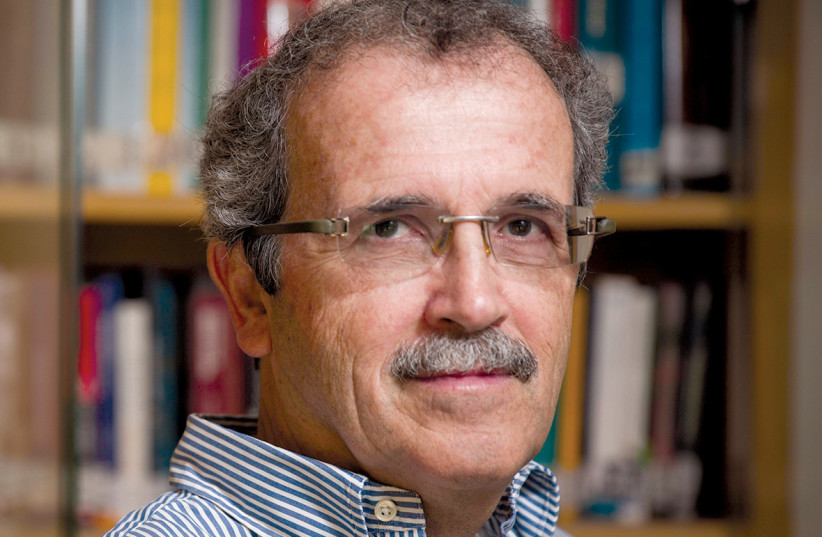The fact that the first judicial reform bill passed its first reading late Monday night does not necessarily mean that the chance for a negotiated agreement with broad consensus is off the table. It may, in fact, serve as a catalyst for increased attempts to bring about a compromise.
Economy Minister Nir Barkat revealed at a B’Sheva group conference in Jerusalem on Tuesday that talks were going on behind the scenes, which he said were “advancing,” saying he believed that “soon we will hear great news about agreements.”
Efforts behind the scene
Barkat did not specify who was talking with whom.
However, reports emerged in recent days that a number of academics were working together to come up with a compromise. Prof. Yedidia Stern, president of the Jewish People Policy Institute, is reportedly involved in these talks. In an interview on KAN Radio on Tuesday morning, he said that there indeed were a number of experts with “over a hundred years of experience” between them who were working to come up with a compromise. Stern refused to go into any detail and did not say whether or not this was being done under President Isaac Herzog’s auspices.
The president’s spokesperson refused to comment on a query about Barkat’s and Stern’s comments. The secretive discourse suggests that a second Herzog initiative may be in preparation behind the scenes – without the politicians having had to sit together.

Herzog first announced an initiative on February 12 that included a five-point plan as a basis for dialogue, which would begin before the first Knesset reading.
But the initiative hit a wall right out of the gate and never recovered. His proposal that the sides begin talks before the first reading effectively meant freezing the legislative process. Justice Minister Yariv Levin and Knesset Constitution, Law and Justice Committee chair MK Simcha Rothman refused, while opposition leader MK Yair Lapid and MK Benny Gantz refused to enter talks without a freeze.
The sides spent the rest of the week playing a blame game. It quickly became clear that Levin on one the hand, and Lapid and Gantz on the other, would pay a political price if they caved in on this issue, so neither side budged.
The presidential initiative officially failed when the reading passed on Monday night.
Ironically, this could actually give each side some breathing room in order to move forward with a new, more detailed proposal, based on experts’ opinions – and without having to pay a heavy political price.
The glaring problem here is that with the politicians not directly involved, it is enough for one side not to support a part of such a proposal for it to fail again, as they may remain unwilling to negotiate.
This is where Herzog comes into play. The president is an experienced politician who understands each side’s political interests as well as anyone. Along with his political savvy, the president has been meeting for weeks with representatives of the coalition and opposition (albeit separately), civil society groups, think tanks, academics and more, giving his initiative, if indeed a new one is in the offing, a “professional” stamp.
He is therefore well positioned to orchestrate a new, full-bodied agreement. Unlike the previous plan, this at first may not come as a publicized announcement and may be delivered to the sides discreetly. However, it would not be surprising if such a plan reaches the public in the next few weeks.
In the meantime, pressure will likely continue to grow, with protesters putting pressure on the coalition, and the ongoing legislation putting pressure on the opposition. In a few weeks, both sides may be more inclined to end the crisis – and a second Herzog plan may eventually provide the solution.
